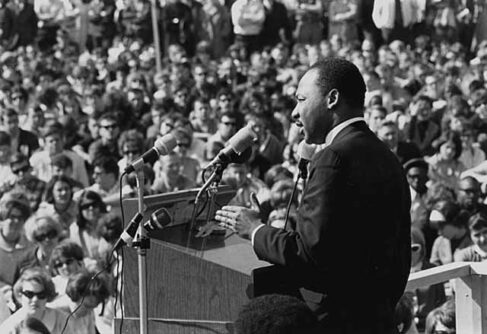Professor Zunz explains the exceptional scope and style of American philanthropy by showing how Americans came to think of philanthropy in distinctive terms. Zunz, who is an expert on Alexis de Tocqueville, sees American philanthropy in terms of Tocqueville’s assessment that Americans act by the principle of “self-interest properly understood.” Zunz writes:
Americans have come to think of philanthropy not as a gift only, but also as an investment. . . . American philanthropy is not a matter of the rich helping people in need, but of people, rich or not, providing for their own future. American philanthropy contains a very important motivating element of frank self-interest. Donors themselves gain when their contribution leads to a cure for a common disease or when it provides them with access to better cultural amenities.
Zunz chronicles how Americans’ self-interest properly understood leads in the early twentieth century to the establishment of two sorts of uniquely American institutions: large, general-purpose philanthropic foundations funded by newly wealthy industrialists, as well as community-based foundations such as the United Way, funded by many small contributions from local citizens.In telling this story, Zunz explores how philanthropists and the federal government have both cooperated and been at odds. Both foundations and the federal government see in the other potential support for their projects; however, cooperation inevitably compromises both the foundations’ and the government’s freedom of action. Over time this has led to varying degrees distance between foundations and the federal government. Zunz explains, for example, why Herbert Hoover, as commerce secretary and later as president, encouraged cooperation between foundations and the federal government, but President Franklin D. Roosevelt curtailed this cooperation during the Great Depression, and then why the federal government turned once again to foundations to help advance American interests abroad during the Cold War.
Zunz also explores how very hard it is to change society through philanthropy. Some of the most compelling parts of Zunz’s history concern how hard it is for philanthropists to effectively address the legacy of slavery in America. Zunz describes how Northern philanthropists who sought to improve the circumstances of free slaves in the South after the Civil War pursued “universal education” for both African Americans and whites so that their philanthropy would be acceptable in the Jim Crow South; this practice contributed to the fact that, while African American literacy rates did improve during the late nineteenth and early twentieth century, inequality in spending on education for African American and white students increased as well. Zunz later describes the challenges foundations such as the Taconic Foundation and the Ford Foundation faced in their promotion of civil rights in the 1960s.
One of the important contributions of Zunz’s history is to remind readers that trends in philanthropy that seem new-fangled often have long precedents: for example, it is a frequent theme today that philanthropists should seeks to ameliorate the root causes of social ills rather than simply dispensing charity. Zunz documents how this theme was already well developed in Daniel Colt Gilman’s early-twentieth-century observations about post-Civil War philanthropy -- observations he was well-placed to make as the first president of the Johns Hopkins University and as one who worked with many leading philanthropists of his day.
Olivier Zunz will discuss his Philanthropy in America: A History at a panel hosted by the Hudson Institute’s Bradley Center for Philanthropy and Civic Renewal this Wednesday, November 16th at noon. Professor Zunz will be joined by the director of the Bradley Center, William Schambra; Bard College professor Ellen Condliffe Lagemann; Distinguished Senior Fellow at Demos Michael Edwards; and Ewing Marion Kauffman Foundation General Counsel John Tyler. The panel discussion of this important book is open to the public and it will also be streamed live; to register for the event or to learn how to watch it online please visit the Bradley Center’s event site.





